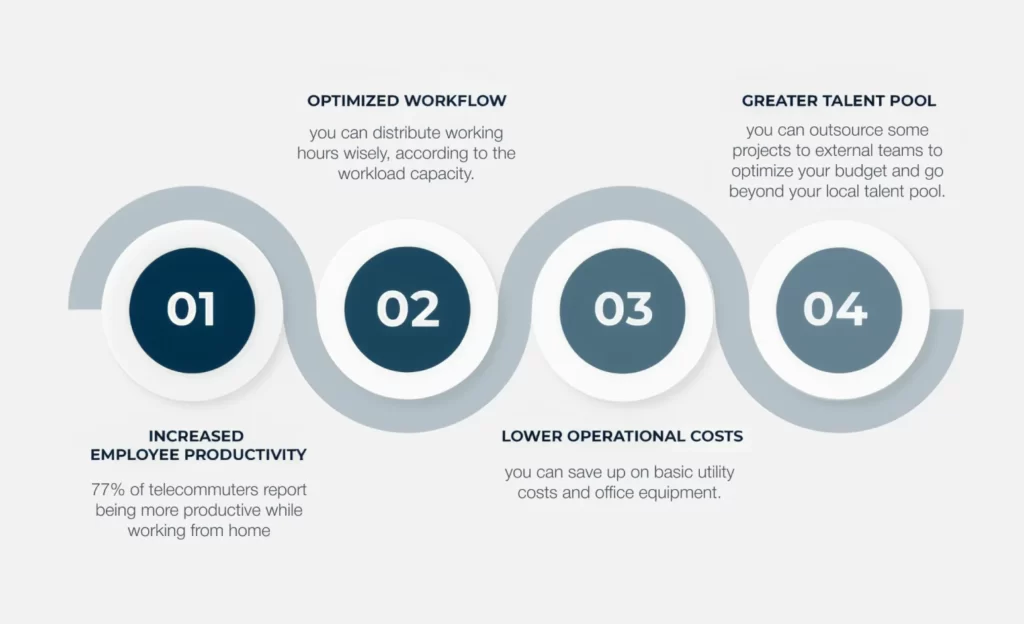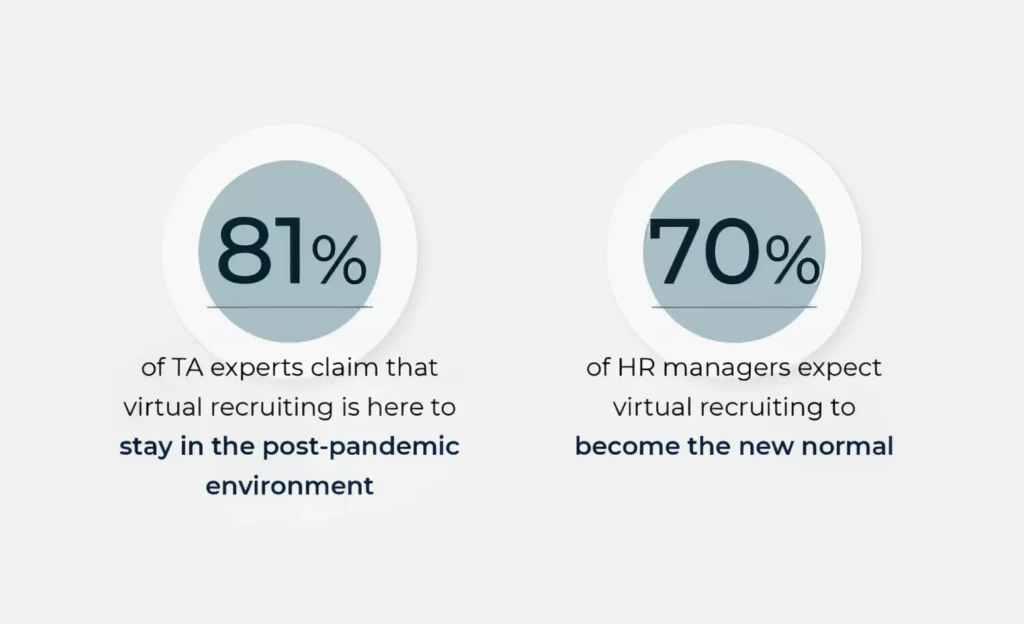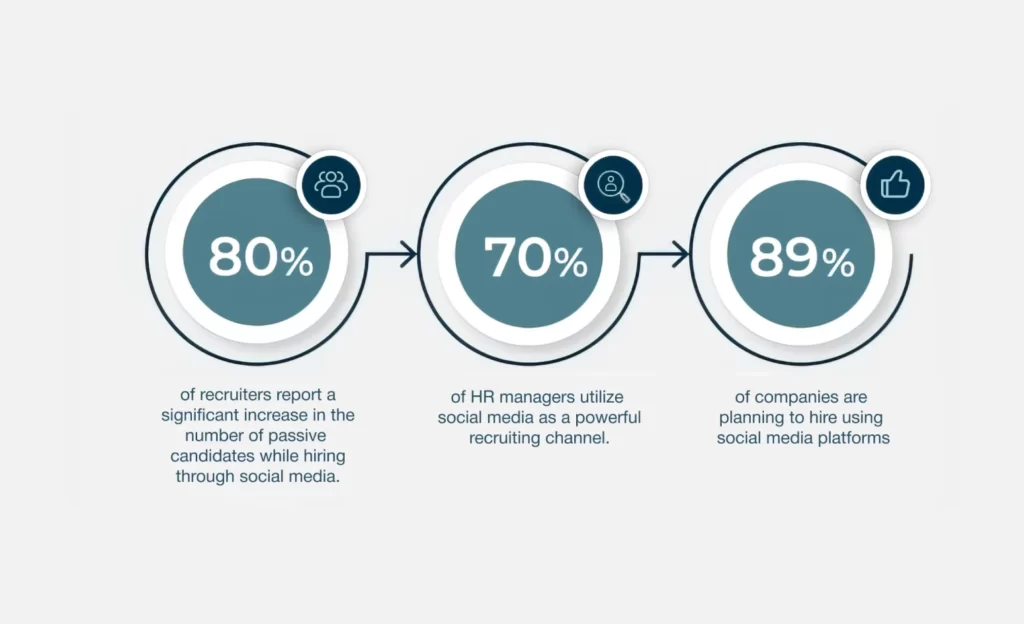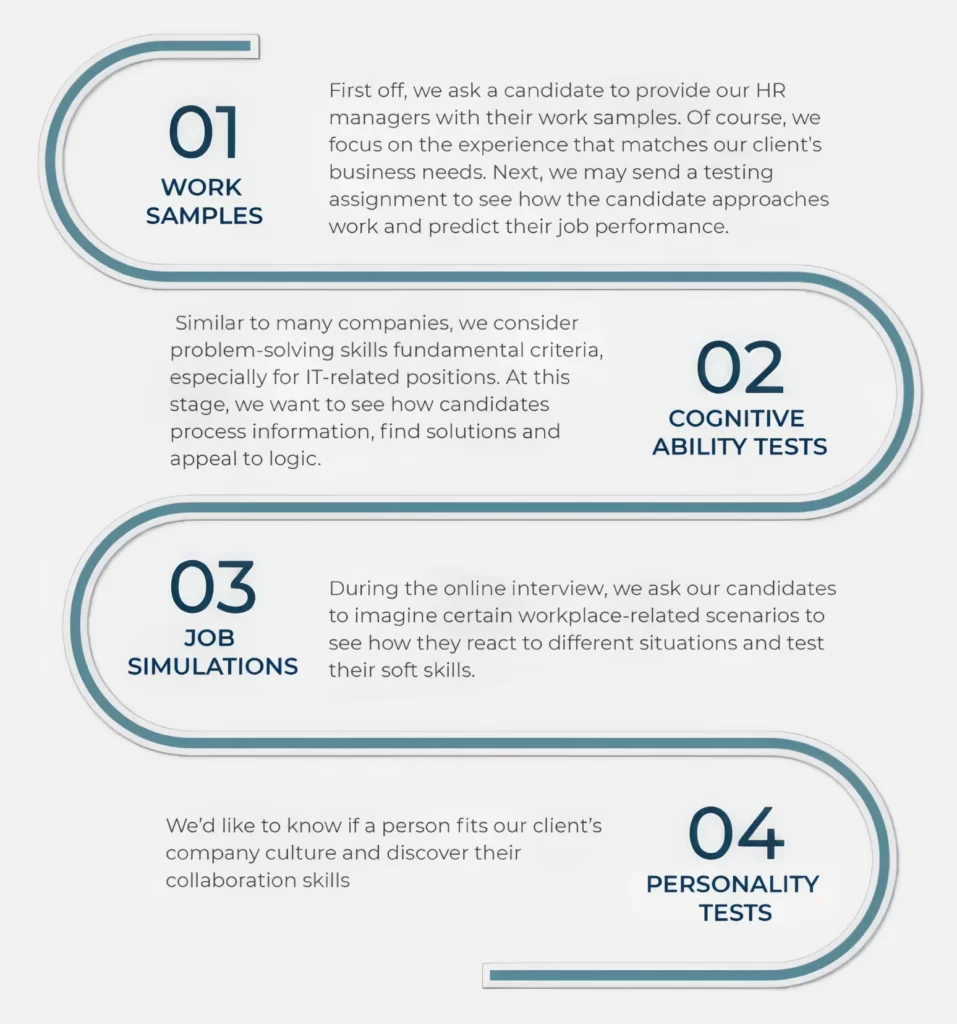
Recruiting trends of 2024 — what the future of recruitment
Reading time 3 min
By Sabina Nabiieva
In the ever-changing business environment where companies tack through talent shortages, crises, and financial challenges, it’s impossible to ignore the global impact of recruiting trends.
Top recruitment trends reshaping the business landscape
While trends come and go, some of them shape the reality as we know it today, changing vectors of development and doing business in the 21st century. Through the last few years, the traditional office model has been gradually replaced with remote work, many companies have switched from local offices to offshoring expansion, and recruitment, in turn, has gone online.

Now that the rise of outsourcing allows companies to breathe a new life in their business models, a smart approach to recruitment has become a common objective of all enterprises.
So far, 2021 has brought countless questions popping into the minds of business owners. And there’s one point that is crucial to get answered first: what does the future of recruitment hold for us? In this blog post, we’re going to break down the top recruitment trends that are meant to change the market for the better.
Let’s have a look at the upcoming new normal in HR.
Hybrid staffing: flexibility as the New Black

In the post-pandemic landscape, more and more companies implement a hybrid model – a balanced combination of remote and onsite work. When the COVID-19 took the world by storm, the new staffing behavior started cultivating the work-from-home culture among recruiters and workers, giving life to one of the biggest recruiting trends.
The latest Global Workplace analytics says that businesses save up to $11,000 annually with part-time telecommuters.
With that in mind, HR managers of now are optimizing the hiring and onboarding strategies into a hybrid model, where positions are classified as full-time remote, part-time remote, 50/50 remote-onsite, and fully onsite.
“Just think about it: why organize a complete office workspace for a position that can be performed from any point? Or why hire a worker on a full-time basis when there’s no such workload? For future recruitment, flexibility is key.”
– HR Lead of Zelh on recruiting trends
Virtual & social media recruiting
It’s no secret that posting a job description on a company’s website or popular job board is not enough to find the best talents possible. Local search is no longer effective either. That’s where the power of virtual and social media recruiting comes in. It has always been around, but now it’s transforming into the new norm.

While companies had already been utilizing video interviewing and remote assessment before the pandemic, the new realities are making virtual recruiting a priority among employers. Having discovered the pros of replacing in-person interviews with video communication via platforms like Zoom and Google Hangouts, businesses will be developing new candidate assessment strategies. Apparently, entry-level positions will involve completely virtual hiring, and executive positions will require face-to-face conversations. At this point, HR and TA experts will start taking a more tech-oriented approach to anything from the talent targeting tools they use for interviewing to the way they evaluate candidates’ performance.

As one of the latest recruiting trends, social media recruiting goes hand in hand with virtual hiring. In order to find the perfect candidates, a recruiter should first explore their digital environment. Put simply, employees are the target of HRs, so they want to be right where their audience hangs out. HR Magazine reports that 82% of global companies are actively using social media for hiring purposes. Furthermore, those companies experience a 50% increase in the quality of candidates. The omnichannel recruitment gives access to a larger talent pool, as well as allows employers to get to know the candidates’ background and find out whether they’re a good match to the business requirements, internal culture, and vision. At the same time, it will keep companies away from the constantly increasing talent shortage.
Employer branding re-thought
Employer branding is going to show up in a whole new light, too. Now, when introducing the company to candidates, recruiting leaders stress the way they treat and support employees, customers, and communities, instead of showcasing the product success and workplace perks. The point is to create an emphatic outreach that will evoke trust, thus positioning the company as a place that puts people first.
“In the world recovering from the pandemic, it’s essential for people to be in a friendly and supportive environment. And the best thing that businesses can do is to become people-first not only from the customer but also from the employee perspective.”
– Yuri Radchishin, CEO at Zelh
Remote talent assessment
Although talent assessment processes may vary from company to company, they have a lot in common in terms of employee requirements and hiring criteria. Whether it’s a face-to-face or remote format, Human Resource managers strive to create a clear picture of a candidate’s experience and personal traits. At Zelh, we follow a set of advanced and relevant methodologies that involve both professional and personality assessments to ensure that the candidate perfectly fits our client’s expectations and vice versa. Usually, our classic scenario of com

Talent pools: the new approaches
Last but not least, recruiting trends are reviving the importance of building external and internal talent pools. As a matter of fact, it’s going to reach its highest in 2021. With the rising popularity of outsourcing and outstaffing solutions, the Human Resource industry is getting more and more competitive. Now, recruiters aim to feed two birds with one scone, solving skill gaps to retain the talent pool within the company and developing a database of skilled potential candidates. By creating a structured career path for employees, an HR manager can broaden the company’s expertise without additional recruiting efforts. Consequently, having a database of skilled professionals will allow the company to save up on recruiting resources.
Final thoughts
Recruitment has always been an important part of any kind of business. But now, with the constantly changing and uncertain business climate, it has become the cornerstone of success and smoothly running enterprises. Every year comes with trends that shape business realities, and the post-pandemic 2021 is definitely no exception.
Of course, changing processes may be challenging for some companies. Well, that’s why Zelh is here. As a company that grows businesses through smart staffing solutions, we never stop discovering new recruiting trends, methods, and strategies.
Whenever you feel that your company’s recruiting is missing something, feel free to contact us — we will be there for you and help implement the new norm into your business model.
Source smarter. Hire faster.





Spend less.
Maximize budget by letting Zelh handle routine tasks.
Book a demo


